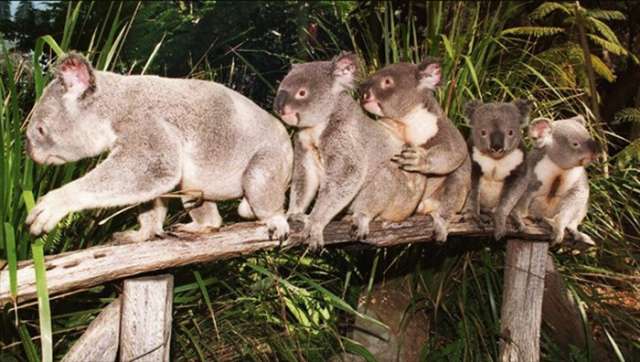The government secretly culled more than 700 of the marsupials back in 2013 and 2014, but overpopulation has persisted, posing a danger to not only the koala population, but their habitat as well.
Jim O`Brien from the Department of Environment told the Guardian Australia on Monday that the issue was proving fatal to animals.
"There should be less than one koala per hectare, but we were finding 15 to 20 koalas on a tree in some places," O`Brien said.
"Koalas have no natural predators now, so something had to give and it was the trees and the animals. People were finding koalas at the base of the trees."
"The trees just started dying and there was a big crash in koala numbers I was burying them everywhere because they were stinking, it smelled so bad."
O`Brien said the forest was at risk because of the overgrazing by the high koala numbers, which would have further flow-on effects to the health of the thousands of the marsupials in the area.
"Something has to be done or the forest will die and there will be no koalas at all," he told the Guardian Australia.
"We`ve had to sit and watch the forest crumble around us, it`s hard to look at. Koalas are cute, they are good for business but there has to be a huge number reduction."
He said activists protesting the cull had no concept of how dangerous the situation was, saying newborn koalas were dying from starvation because their mothers were unable to care for them - just days after being born.
"People who sit on their couches and say it`s cruel should come out here to have a look before making their moral judgments. What` s cruel is watching koalas starve to death, to see them push their babies out of a tree because there`s no food there for them," O` Brien said.
"If we don`t intervene, they are going to die a painful death. I`m an animal lover but I believe in what we`re doing here. We`re doing something that makes a difference."
More about:
















































